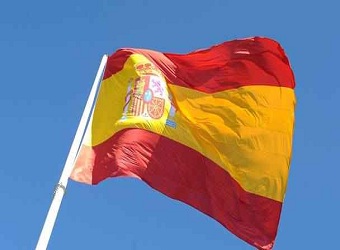Catalonia’s secessionist leaders will appear before a court in Madrid on Thursday to answer charges of rebellion and sedition, though the region’s former president Carles Puigdemont said he would not turn up.
Prime Minister Mariano Rajoy sacked Puigdemont and his government on Friday, hours after the Catalan parliament made a unilateral declaration of independence – a vote boycotted by the opposition and declared illegal by Spanish courts.
Puigdemont said on Wednesday he would ignore the court order to answer charges over the region’s push for independence, but he was ready to testify from Belgium, where he had traveled with four other members of his sacked cabinet.
The other 15 due to testify from 9 a.m. (0800 GMT) are Puigdemont’s former vice-president Oriol Junqueras, eight other members of his sacked cabinet and six senior regional lawmakers, including the speaker of the Catalan parliament, Carme Forcadell.
Puigdemont and his former team were summoned by the High Court while Forcadell and the other lawmakers were summoned by the Supreme Court.
The judges will decide at this first hearing whether they start a comprehensive investigation that could take several years and potentially lead to a trial.
They will also determine whether those called to testify should go to jail pending the investigation. They might also grant them conditional bail or order them to surrender their passports.
The courts have already told the Catalan secessionist leaders to deposit 6.2 million euros ($7.2 million) by Friday to cover potential liabilities.
Puigdemont said on Tuesday he would only go back to Spain when given unspecified “guarantees” by the Spanish government.
If Puigdemont did fail to turn up, an arrest warrant could be issued that would make it virtually impossible for him to stand in a snap regional election called by the Spanish government for Dec. 21.
Following a tumultuous month, attention is gradually turning to the December vote.
Cracks have appeared within the pro-independence coalition of center-right and far-left parties as well as inside Puigdemont’s own PdeCat (Democratic Catalan Party) where some of his allies are now pushing for a negotiated solution with the central government.
The struggle has also divided Catalonia itself and caused deep resentment across the rest of Spain, although separatist sentiment persists in the Basque Country and some other areas.
Two recent opinion polls showed support for independence may have started to wane.
But an official regional survey published on Tuesday showed some 48.7 percent of Catalans believe the region should be independent, up from 41.1 pct in June and the highest since December 2014. Source: Reuters
Source: Reuters


